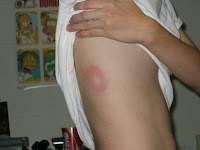It was pure fantasy. Old, almost classical,
make-believe worlds populated by strange characters with even stranger names.
And yet it was stuffed full to overflowing with significance, like a
stocking hung by the fireplace on Christmas morning.
The story is about an unassuming fellow, who enjoys his
books, a warm fire, good food and casual times with friends. He had lived what we would call a simple, comfortable
life in which, apart from a celebration now and then, each day was predictable. But the unpredictable happened. Shock, frustration, denial and confusion
flooded into this unsuspecting character’s life, and in the process swept away
his innocence and uncomplicated existence.
“The Hobbit” was written by J.R.R. Tolkien 75 years ago. It has taken Hollywood that long to do justice
to its imaginary tale. Its story is both
simple and complex, suitable for children (except the very young or overprotected)
and challenging for adults. It portrays
both evil and good, but recognizes the shadow of one in the other. It shows the wizardly wisdom of Gandalf happily
coexisting with simplistic naïveté of Bilbo Baggins, the hobbit. Courage and camaraderie combine to thwart the
seemingly insurmountable destructive powers of darkness and despair. But it was its subtitle, “An Unexpected Journey”,
which led me to conclude this story could be an allegory for life with
Parkinson’s disease.
Seven years ago my life was pretty simple. Staring into the future as far as I could see
it all looked predictable, even comfortable.
Little did I know then that my life was about to be figuratively and
literally shaken to its very core. I was
totally unprepared and left reeling from the January 19, 2006 diagnosis of
Parkinson’s disease. Life would never be
the same. The path ahead became
unpredictable, leading through fields of false hope, black nights of fear and
into narrow tracks in the unknown. At
times I found myself lost and alone in what seemed like a maze of caverns.
But the truth is that, like Bilbo Baggins, I would never
exchange the unexpected journey, with its challenges, friendships and
adventure, for a predictable, comfortable, stay-at-home life. No, despite the many setbacks, I would not
give up the invaluable lessons I have learned along the way. Like Gandalf said when questioned about
allowing Bilbo Baggins to come along on such a dangerous journey to challenge
such a formidable foe. Some believe, he
said, that “it
is only great power that can hold evil in check, but that is not what I have
found. I found it is the small everyday deeds of ordinary folk that keep the
darkness at bay. Small acts of kindness and love. Why Bilbo Baggins? Perhaps
because I am afraid, and he gives me courage.”
Indeed, “it is the small
everyday deeds of ordinary folk that keep the darkness at bay. Small acts of kindness and love.” The power of Parkinson’s disease in my life
has been held in check by the small, everyday deeds of my friends and family. Their reassuring words and simple acts of
kindness and love give me courage to continue fighting.
Whatever your views about
Christmas (whether you are the “Happy Holiday” type or something else), there
is something compelling about the story.
A baby, gifted to humanity by God yet born to ordinary peasant parents,
he was destined to hold evil in check and keep the darkness at bay through
sacrificial acts of kindness and love.
Why? Perhaps because when we are
afraid he gives us courage.
Perhaps you’re a little like
me as I anticipate with some trepidation the New Year, 2013. If you are, maybe reciting words of Bilbo
Baggins will give each of us courage as we embark upon the path ahead. “I am
going on an adventure” makes more sense
to me than “Auld Lang Syne”.






























